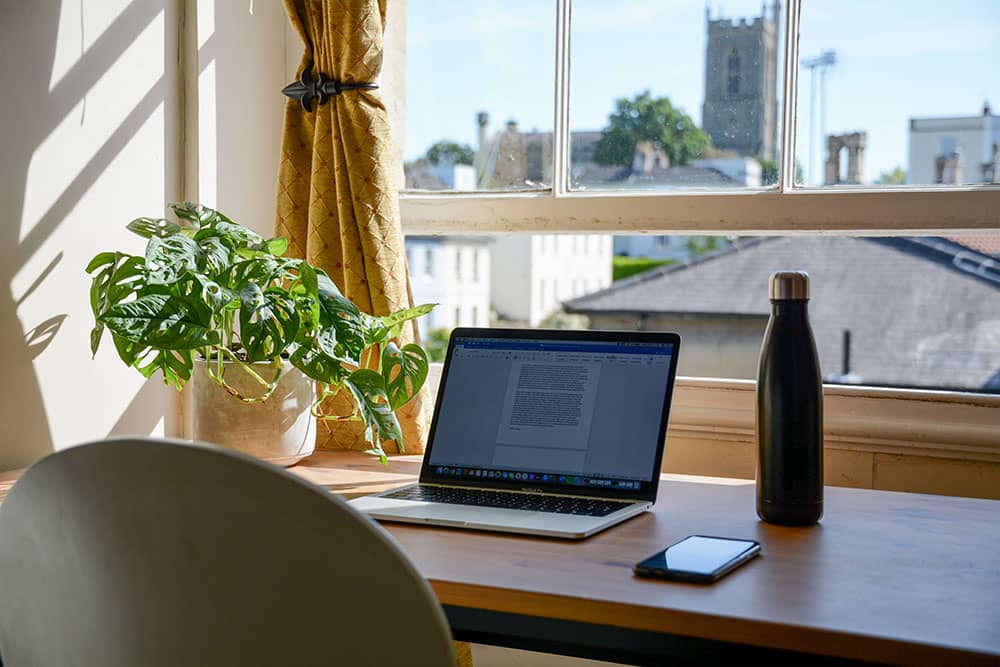There is a growing trend toward operating businesses from home. In a December 2020 report, Business.gov shares that there are nearly one-million Australians running businesses from their homes. Whether you are in WA, NSW or Victoria, your laws & rules will change.
There are numerous perks to conducting your business from your home. Flexibility, increased profitability, and a comfortable work environment are a few of the top pros regarding home-based businesses. However, it is critical for those thinking about starting a company to understand that having a business in the home does not free you from regulations and other essential facets of ownership.
Running a business from home offers numerous benefits, appealing to many due to its flexibility, cost efficiency, and the opportunity for a better work-life balance. Alongside these benefits, it’s also essential to understand the regulatory environment in Australia to ensure compliance and smooth operation. Here, we’ll explore both aspects to give a comprehensive overview.
Benefits of Running a Business from Home
- Cost Savings: One of the most immediate benefits is the reduction in overhead costs. Renting office space, commuting, and buying office equipment can significantly add to operational expenses. Running a business from home eliminates many of these costs, making it an economically viable option.
- Flexibility: Home-based businesses offer unparalleled flexibility in terms of work hours and environment. This flexibility allows business owners to create a work schedule that fits around personal commitments and lifestyle choices, contributing to a better work-life balance.
- Increased Productivity: Without the distractions and time lost in commuting, many find that they’re more productive working from home. The ability to create a personalised work environment can also lead to increased efficiency and output.
- Tax Advantages: Home-based businesses in the Australia might be eligible for certain tax deductions. These can include a portion of home-related expenses, such as mortgage interest, utilities, and property taxes, proportional to the space used for the business.
- Sustainability: Operating from home reduces the need for commuting and can lead to a decrease in the business’s carbon footprint. This not only benefits the environment but can also align with the values of eco-conscious customers.
Regulations for Home-Based Businesses in Australia
In Australia, home-based businesses must navigate a series of regulations to ensure legality and compliance. These include:
- Council Regulations: Most local councils have specific regulations regarding home-based businesses. These can include restrictions on the type of business, the number of employees who can work in the home, and customer visits. It’s crucial to check with your local council for applicable regulations.
- Zoning Laws: Zoning laws may affect the ability to run certain types of businesses from home. It’s important to ensure that your business complies with local zoning restrictions.
- Business Registration: Like any business in Australia, home-based businesses must be properly registered. This includes obtaining an Australian Business Number (ABN) and registering for Goods and Services Tax (GST) if applicable.
- Insurance: Home-based businesses should have appropriate insurance to cover for business-related activities. Standard home and contents insurance might not cover business activities, so additional coverage may be required.
- Health and Safety: Ensuring a safe working environment is crucial, even at home. This includes meeting specific health and safety regulations applicable to your industry.
- Privacy and Data Protection: If your business involves handling personal data, you must comply with Australia’s privacy laws, including the Australian Privacy Principles (APPs).
Understanding these benefits and regulations can help prospective and current home-based business owners in Australia navigate the challenges and advantages of this business model. Proper planning and compliance with local laws and regulations can pave the way for a successful and fulfilling home-based business venture.
Insurance Liabilities for a Home-Based Business.
Navigating insurance liabilities is a crucial aspect of running a home-based business in Australia. The transition from an office-based operation to a home environment introduces unique insurance considerations. Traditional home and contents insurance policies may not adequately cover the scope of business activities, potentially leaving significant gaps in coverage. Understanding the insurance requirements and ensuring you have the correct policies in place is essential for protecting your business, assets, and liabilities. Here, we delve into the key areas of insurance liabilities for home-based businesses, p
- Business Property Insurance: While home and contents insurance covers personal belongings, it typically does not extend to business equipment or inventory stored at home. Business property insurance can cover the loss or damage of computers, printers, stock, and other business assets due to events like fire, theft, or natural disasters.
- Professional Liability Insurance: Also known as professional indemnity insurance, this is critical for businesses that provide services or advice. It protects against claims of negligence, malpractice, or misadvice that result in financial loss to a client. For consultants, advisors, or service providers working from home, this insurance is vital for legal and financial protection.
- Public Liability Insurance: If your home-based business involves clients or customers visiting your home, public liability insurance is essential. It covers injury to people or damage to their property while on your premises. This insurance can safeguard against potentially crippling legal and compensation costs arising from accidents.
- Product Liability Insurance: For businesses that manufacture or sell products from home, product liability insurance can protect against claims of injury or damage caused by defective products. This coverage is crucial for minimising the financial impact of lawsuits and ensuring the sustainability of your business.
- Business Interruption Insurance: Unforeseen events can disrupt your business operations, leading to loss of income. Business interruption insurance compensates for lost revenue during periods when you cannot conduct business as usual due to incidents like natural disasters or major equipment failure.
- Cyber Liability Insurance: With the increasing reliance on digital platforms and data storage, cyber liability insurance has become indispensable. It covers the costs associated with data breaches, including customer notification, credit monitoring services, and legal fees. This is essential for ecommerce based businesses.
Understanding and addressing insurance liabilities is foundational to the security and longevity of your home-based business. Given the unique challenges of working from home, ensuring comprehensive coverage that spans professional liability, property, and cyber risks is essential.
The details pertaining to business insurance for home-based businesses can be confusing. In particular, owners of home-based companies are often not aware of insurance essentials for businesses run from a home that is a rental property.
Home Business As A Tenant
Government Regulations Regarding Property Used to Run a Business
Entrepreneurs who lease, rent, or own the property they use for their business, be it commercial or a residence, shall meet the following requirements:
- Have the opportunity to deduct some property expenses
- Report any rental income in a tax return
- Pay capital gains tax on profits from the sale of the property
- Address any GST obligations and entitlements.
If My Residence Is a Rental, Can I Legally Run a Home-based Business There?
There is no one-size-fits-all answer to questions about running a home-based business from a rented residence. Generally speaking, a rental agreement permits a person to occupy and use a dwelling for residential purposes in exchange for fair value payment.
By definition, running operating a business from a rental dwelling is not specifically illegal. A grey area exists where a landlord and tenant may agree to the use of the rental for a home-based business. However, various elements can influence a landlord’s decision. Details regarding a property’s insurance cover should play a significant part in determining permission to operate a company from a rented residence.
Do I Need My Landlord’s Consent to Run a Business From My Rented Home?
Before you open any type of company in a home that you rent, getting written approval from your landlord is essential. Frequently, operating a place of business from a rented residential property will lead to the termination of a lease agreement. For this reason, permission is vital.
Many at-home entrepreneurs mistakenly believe that running a small company or a ‘side-hustle’ is acceptable even if they rent their dwelling. In some cases, work in areas such as freelance writing, social media influencing, or online consulting goes utterly unnoticed by landlords. However, being unnoticed does not mean that the business has approval.
Will My Landlord’s Property Insurance Cover My Home-based Business?
With rare exceptions, the insurance carried by the owner of a rented dwelling will not cover a tenant’s home-based business venture. In fact, many insurance policies have specific clauses outlining consequences if tenants are operating companies from their flats or rented homes. A landlord may risk termination of property insurance if tenants breach the terms of the contract. Denial of claims is an additional consequence of such a breach.
Example: Haley runs a small hair salon in her rental flat without the landlord’s knowledge or permission. One of her client’s trips over an appliance cord and fractures her arm. Not only will the landlord’s insurance policy not cover the accident, but the landlord may also lose their insurance or face higher premiums. Additionally, Haley may lose her lease, and she may be found liable for the customer’s injuries.
What Kinds of Business Insurance Should I Consider if I Run My Company From My Rented Home?
There are several types of business insurance policies that can be helpful to you, depending on the type of business you have and other specifics. A Grace Insurance professional can help you tailor a policy to fit your needs.
Here are three kinds of policies that apply to most businesses:
- Public Liability – The policy will protect you if you are at fault for a third-party loss in your business.
- Asset Insurance – Having asset insurance will protect critical pieces of equipment and inventory
- Professional Indemnity Insurance – This insurance covers you if a client sues you for a professional error. Those who offer advice or are a part of the service industry benefit greatly from Professional Indemnity Insurance
What Landlord’s Need to Know
Signing off on a tenant’s request to open a home-based company can be a slippery slope for property owners. There is a reasonable chance that permitting a business or businesses can void the insurance contract. A review of the property insurance and all of the addendums must occur before granting permission to operate a business to a tenant.
Points to Consider Prior to Permitting the Operation of a Business From Your Rental Income Property
- If the property has a body corporate, can businesses operate from its residential units?
- Will the strata insurance permit operation of businesses?
- Is a commercial lease necessary or is the property still mainly used as a residence?
- What is the business the tenant plans to run? Insurers, as well as other tenants, will likely view a copywriter or a small virtual design studio differently than a company that runs a daycare or gives tuba lessons.
- Will clients and suppliers visit the premises? Visitors to the property increases the potential for mishaps and therefore, the liability.
- Will the business cause additional use of resources such as water or electricity? Is the tenant willing to absorb the extra cost?
- Does the tenant have appropriate licensing for the services or products provided?
- Does the tenant have the necessary insurance in place for the business and do they understand the landlord’s property insurance does not cover their business?
- Will the tenant store stock on the rental property? What type of materials will be on the premises? Do these materials cause additional risk to the property or other occupants?
Insuring a home-based business in a rental dwelling may seem confusing. You can rest assured that the insurance experts at Grace insurance can guide you through the process and make sure you have the cover you need.
*Please Note* The material presented here is for informational use only. It is not legally binding insurance advice and should not replace a consultation with an insurance professional.






